‘Tis The Season To Be Giving

Giving Tuesday brings together people, nonprofits, families, and businesses across the country to give to charitable organizations and share their resources with those in need. Since 2012, #GivingTuesday is celebrated on the Tuesday following Thanksgiving, Black Friday and Cyber Monday. The day kicks off the giving season in the US as charitable giving increases throughout the holiday season.
There are many ways, besides giving money, that one can give to those in need on Giving Tuesday. These ways include giving a helping hand to someone in need; volunteering at a hospital, meal kitchen, etc.; giving food to the homeless. Giving Tuesday is about these and countless acts of generosity that can brighten up a smile or change a life.
Over the years, PfD has been fortunate receive Giving Tuesday donations from numerous supporters, which has enabled us to continue our impactful work. Our work includes water and sanitation improvements in Nigeria, developing the pineapple value chain in Benin, and developing interventions for malaria prevention and control in Cambodia. Not only do we aspire for these communities to be healthy and economically empowered, we want these changes to be sustainable. As a result, we work closely with local organizations in these communities.
One of our most impactful projects is WADA, which is being implemented in Nigeria. Through WADA, PfD is ensuring that communities in Abia and Cross River States gain improved access to clean water and sanitation facilities. We are working to build water and sanitation facilities in 58 rural communities in the two states. Nma Oyebiya is one of the beneficiaries who could not afford to construct a pit toilet due to his low income. PfD, with the support of community leaders and Water, Sanitation and Health Committee (WASHCOM) members, constructed an improved toilet for community members such as Nma.
In addition to WADA, PfD supports girls’ education in Nigeria through the Anne Johnson Memorial Scholarship Fund (AJMSF). The AJMSF provides scholarships for girls who are at the middle and high school levels. This scholarship is a great source of support for poor and low-income families who want to educate their girls and broaden their future opportunities. Additionally, the AJMSF helps to remedy the disparities in the education of boys and girls in Nigeria.
| Crackeado |
| Italianopro |
| Indir-Full |
We are proud of our outstanding work and couldn’t have done it without your support. We implore you to, once again, choose PfD as your Giving Tuesday beneficiary. Visit our site to learn about the work that we do and the impact that your donation will have on underserved communities. Your support on #GivingTuesday, and every day, allows us to expand our impact. Thank you for your generosity!
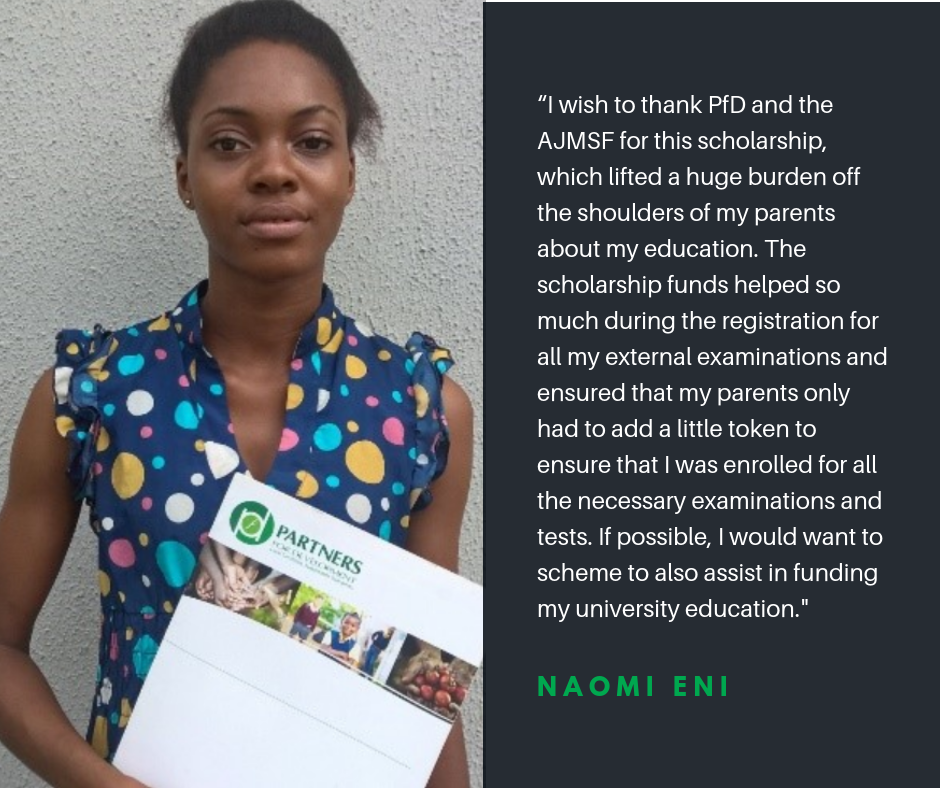
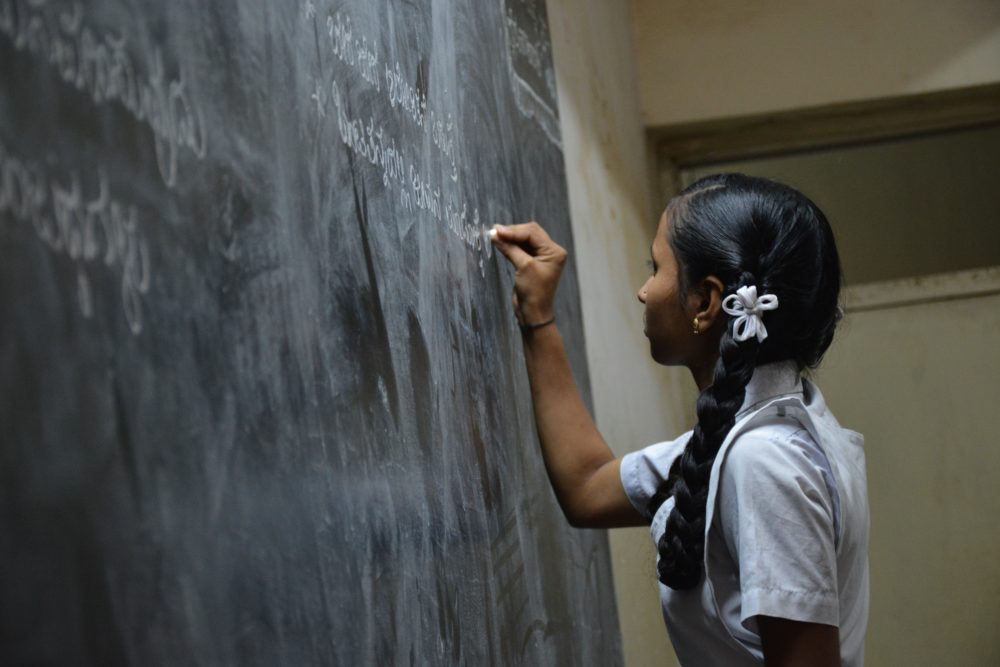
In 2012, the United Nations (UN) declared October 11th International Day of The Girl Child. Since then, this day has been commemorated internationally to empower girls and to raise awareness about the challenges they face. Every year, the International Day of The Girl Child is an opportunity to highlight problems in education, health, etc. and advance solutions for their alleviation.
With Her: A Skilled Girl Force
This year’s International Day of The Girl Child theme, “With Her: A Skilled Girl Force”, is a call to support girls as they innovate, inspire and transform their futures.
There are approximately 1.1 billion (UN women) girls in the world, many of whom lack equal access to opportunities enjoyed by their boy peers. Education, is vital, basic human right to which girls around the world are denied access. According to UNESCO, girls are more likely to never enter primary school than boys. Those who are lucky enough to be enrolled in school will have completion rates lower than those of boys, as their participation dwindles with progression through the education system. As a result, over half, approximately 31 million, of children who are out of school are girls. Rather than get an education or skills training, 12 million girls who are under 18 will be married in 2018, and 21 million below 19 will become pregnant (UN Women). Overall, the statistics of girls’ realities in education and other areas are countless and staggering.
Like millions of girls around the world who are denied opportunities, mistreated, and facing adversity, many Nigerian girls are no exception. In the Northern part of the country, for instance, families would rather their daughters work and bring home income instead of continuing with their secondary school education (equivalent to U.S middle and high school levels). The result is that Nigerian girls’ secondary school attainment rates are 10% lower than those of Nigerian boys. Without education and training, these girls grow up to have limited opportunities for social and economic progression. Moreover, communities are worse off as significant portions of their populations are uneducated and lack adequate skills to increase productivity.
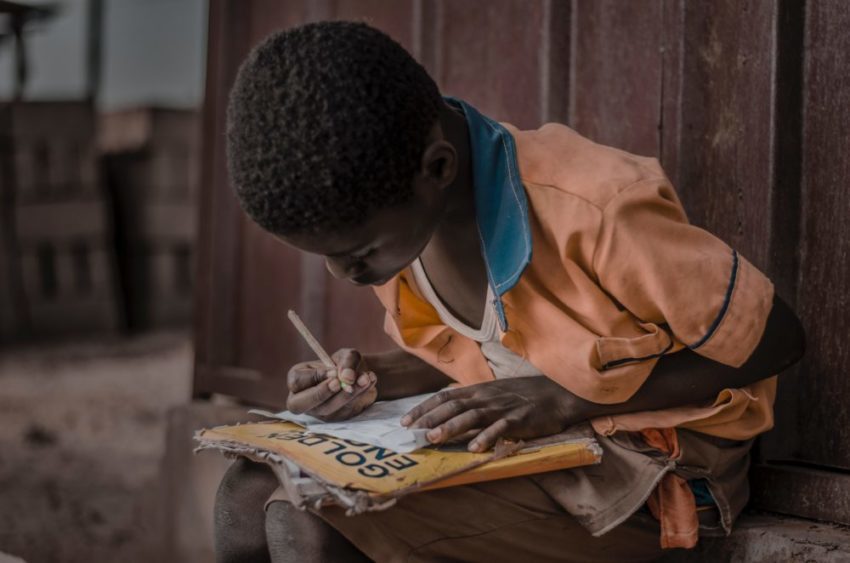 Educating girls is crucial to empowering and preparing them for successful futures, which is why Partners for Development (PfD) enables girls in Nigeria to complete their secondary school education. Through the Anne Johnson Memorial Scholarship Fund (AJMSF), established in 2014, PfD provides scholarships to girls in secondary school. We work with one of our long-term partners, Lift Above Poverty Organization (LAPO), located in Edo State, southwestern Nigeria to administer these scholarships. The scholarships, which cover about 40-50% of the recipient’s total annual school fees, have, thus far, benefited 78 girls! One recipient, Evelyn Igbalagh, called the scholarship a “blessing” that “has helped lift off the burden of education from my parents”.
Educating girls is crucial to empowering and preparing them for successful futures, which is why Partners for Development (PfD) enables girls in Nigeria to complete their secondary school education. Through the Anne Johnson Memorial Scholarship Fund (AJMSF), established in 2014, PfD provides scholarships to girls in secondary school. We work with one of our long-term partners, Lift Above Poverty Organization (LAPO), located in Edo State, southwestern Nigeria to administer these scholarships. The scholarships, which cover about 40-50% of the recipient’s total annual school fees, have, thus far, benefited 78 girls! One recipient, Evelyn Igbalagh, called the scholarship a “blessing” that “has helped lift off the burden of education from my parents”.
This International Day of the Girl Child, and in keeping with the theme “With her: A skilled girl force”, PfD is restating its committed to supporting girls in Nigeria by investing in their education. We believe that when girls are educated, entire societies are uplifted. Educated girls grow up to be teachers, doctors, entrepreneurs, etc. who invest in their communities and help to formulate solutions that reduce poverty and other challenges.
If you want to provide education opportunities for girls in Nigeria, please donate to the AJMSF. With approximately half of Nigeria’s population currently at or below the poverty line (World Bank), many families qualify for our AJMSF scholarships based on economic need alone. As a result, demand for the scholarships currently exceeds financial resources. Your money could help us educate more girls who will innovate, inspire, and transform their futures!

February 11, is recognized by The United Nations as International Day of Women and Girls in Science. On December 22, 2015, the UN General Assembly adopted the resolution that would recognize the need and the importance of women and girls having a participatory role in the fields of science, technology, and innovation. The role of women and girls in these fields are important components of successfully achieving gender equality and empowerment of women. In order for this to happen they must have full and equal access to take on roles within these fields. According to the UN’s website, in a study conducted within 14 countries, it was found that the probability for female students of graduating with a Bachelor’s, Master’s or Doctor’s degree in science-related fields are 18%, 8% and 2%. In comparison, the probability for male students is 37%, 18%, and 6%.
Partners for Development believes women and girls empowerment is the cornerstone for sustainable development. In memory of Anne Johnson, former Nigeria Country Program Director and dedicated PfD team member for over 20 years, PfD created the Anne Johnson Memorial Scholarship. One of Anne’s greatest passions and development issues was girl’s education. With this scholarship, PfD partnered with Life Above Poverty Organization (LAPO), located in Nigeria, to provide scholarships for girls in secondary school. With the goal of breaking the cycle of poverty, and allowing for the next generation to thrive, the scholarships are awarded to the daughters of microcredit borrowers.
Meet Vivian Nzube Izuagwu, a Anne Johnson Memorial Scholarship Recipient. Vivian is 15 years old and the youngest child of Mr. and Mrs. Izuagwu, who are both petty traders. Vivian is one of two daughters in a family of five children. She attends Federal Government College, in Warri, Delta State in southern Nigeria and is in Senior Secondary School. According to her friends, Vivian is a very serious and intelligent student who always comes to school before every other student and inspires her mates to perform better in their studies.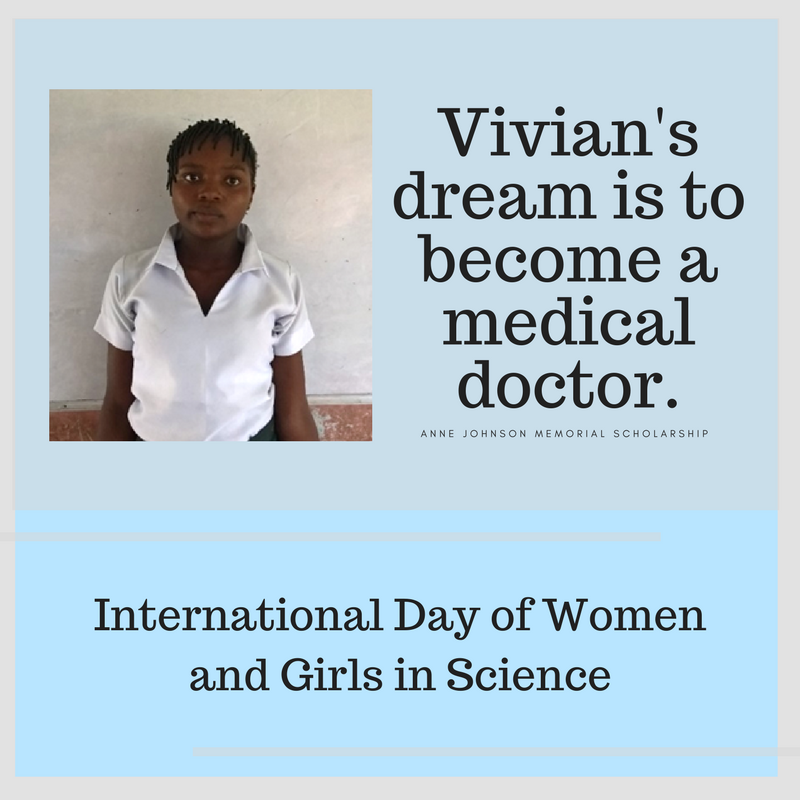
Vivian’s dream is to become a medical doctor in the future and is studying very hard to achieve that dream. In Vivian’s words, “I like the Anne Johnson Memorial Scholarship because in the past, I was always unable to pay my school fees regularly, but now, I pay my fees on time….. the burden and stress on my parents has also reduced and I have the privilege of attending one of the best schools in Delta State. So I am happy about the scholarship.”
These scholarships further help ensure that young girls can finish and pursue a higher education, a task that may have been financially impossible if not for the scholarships. Women and girls having access to higher education and roles in science help bring about some of the greatest minds, that without, possibly many innovative, and lifesaving inventions and ideas would not be exist. Donate today and become a monthly donor to support PfD’s mission to improve access to education to girls like Vivian.


To educate a girl child is to invest in a better tomorrow. The evidence is clear- investing in girls’ education results in strong economies as well as healthy and stable communities. However, the UNESCO Institute for Statistics (UIS) asserts that girls have a higher chance than boys of never setting foot in a classroom. Girls continue to face indomitable challenges, which pose a significant barrier to their education; therefore, Partners for Development (PfD) has initiated a campaign to educate and empower girls.
PfD’s Anne Johnson Memorial Scholarship Fund (AJMSF), named for our late colleague Anne Johnson, aims to support the education of girls in Nigeria, where there are gender disparities in education. Boys attend secondary school at a rate that is 10% higher than girls. The literacy rate among the 15-24 age group is 76% for males and only 58% for females (UNICEF, 2013). These disparities continue to grow in the poorer northern region, where girls are forced to work rather than continue beyond primary school.
The AJMSF provides support to girls, in the form of tuition and books, to support them through Junior Secondary School thus increasing the retention of girls in secondary schools in Nigeria. The majority of donations come from individuals, and it is through their generosity that we are able to cover 40-50% of each girl’s total annual school fees, insuring the sustainability of the fund. Since its inception in the 2014/2015 academic year, the AJMSF has supported the education of 48 Nigerian girls! PfD is immensely grateful for the generous donations, which have enabled us to empower these future leaders.
 Evelyn Ivie Igbalagh (pictured to the left), age 18, is the second of five children of Mr. and Mrs. Igbalagh. Her parents are peasant farmers living in a rural community, Ehor, in Edo State in southwestern Nigeria. Income from the family’s small farm makes it very difficult to afford school fees for Ivie and her four siblings (while public school theoretically should be free in reality parents are expected to contribute for school supplies, teacher compensation, and school lunches). At times, Ivie has been forced into street hawking to supplement her family’s income, a situation that can expose her to emotional and physical abuse. Ivie’s parents made the difficult choice of sending her to live with relatives in Benin City, capital of Edo State. In exchange for work that Ivie does at the relatives’ home they help cover some of her school costs.
Evelyn Ivie Igbalagh (pictured to the left), age 18, is the second of five children of Mr. and Mrs. Igbalagh. Her parents are peasant farmers living in a rural community, Ehor, in Edo State in southwestern Nigeria. Income from the family’s small farm makes it very difficult to afford school fees for Ivie and her four siblings (while public school theoretically should be free in reality parents are expected to contribute for school supplies, teacher compensation, and school lunches). At times, Ivie has been forced into street hawking to supplement her family’s income, a situation that can expose her to emotional and physical abuse. Ivie’s parents made the difficult choice of sending her to live with relatives in Benin City, capital of Edo State. In exchange for work that Ivie does at the relatives’ home they help cover some of her school costs.
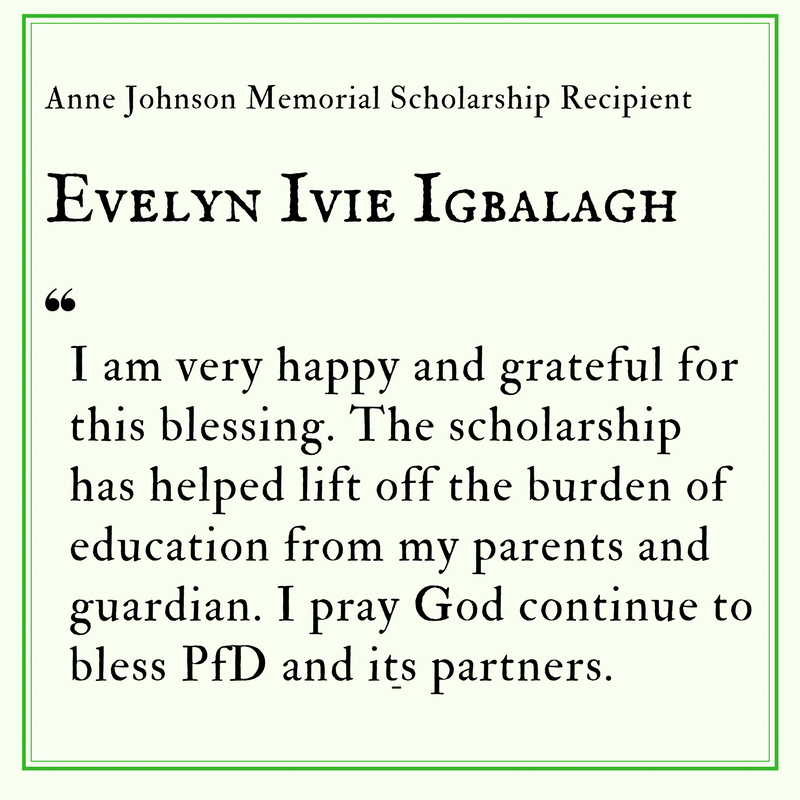 The relocation and level of poverty in her own family has slowed Ivie’s progression through the grades of secondary school. At age 18 she is several years older than most of her classmates because of her poor family status that is unable to pay for her education) at Uselu Junior Secondary School, Uselu, Benin City, Edo State where she is in her final year. Ivie is one of the Anne Johnson Memorial Scholarship recipients. She attends a mixed secondary school of about 3,000 students. Her favorite subject is Business Studies and she enjoys reading. Despite the many challenges she has faced Ivie is determined to move on to Senior Secondary School and complete the three years at that higher level. Learn more about the impact of the AJMS and read other success stories in the recent report.
The relocation and level of poverty in her own family has slowed Ivie’s progression through the grades of secondary school. At age 18 she is several years older than most of her classmates because of her poor family status that is unable to pay for her education) at Uselu Junior Secondary School, Uselu, Benin City, Edo State where she is in her final year. Ivie is one of the Anne Johnson Memorial Scholarship recipients. She attends a mixed secondary school of about 3,000 students. Her favorite subject is Business Studies and she enjoys reading. Despite the many challenges she has faced Ivie is determined to move on to Senior Secondary School and complete the three years at that higher level. Learn more about the impact of the AJMS and read other success stories in the recent report.
With the 2017/2018 Nigerian academic year commencing this October, consider making a donation to the AJMSF fund. Give the gift of a brighter future to girls like Ivie.

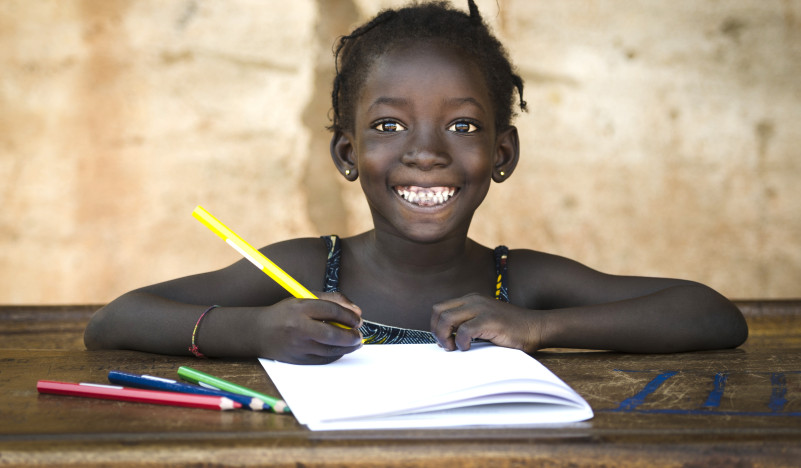
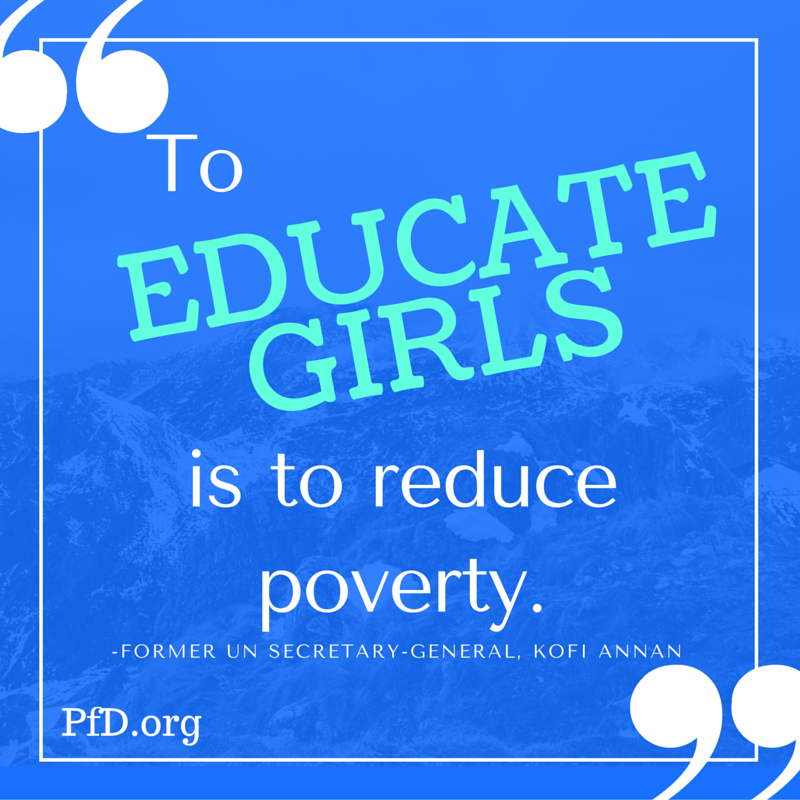
The current literacy rate for females in Nigeria is approximately 20% lower than it is for males1. Girls also spend an average of eight years in school throughout their lifetime in comparison to girls in the United States whom spend an average of 17 years. With secondary education in Nigeria costing around $500.00 annually, many young girls are unable to advance beyond elementary education without additional support. 70% of Nigerians1 also live below the poverty line and it may be quite difficult to use excess funds towards furthering their child’s education. With the help of your donation to the Scholarship Fund, PfD can significantly reduce the financial strain on families in order to continue to pay for education for their children.
Meet Lucy, one of the newest recipients of the Anne Johnson Memorial Scholarship Fund. Lucy is 12 years old, the second of three children and ranks at the top of her class. Lucy aspires to educate other young children one day by becoming a Mathematics lecturer after her studies. She is currently studying twelve subjects and loves learning at school, reading, and mathematics. All of Lucy’s textbooks for her numerous classes were provided by the Anne Johnson Memorial Scholarship Fund (AJMSF). Lucy’s dreams are much more of a reality with the help of AJMSF. Lucy’s mother, Mrs. Ifeoma, was so grateful to PfD for giving her daughter the opportunity to help further her education and promised to continue to encourage her daughter to do well in her studies and stay in school.
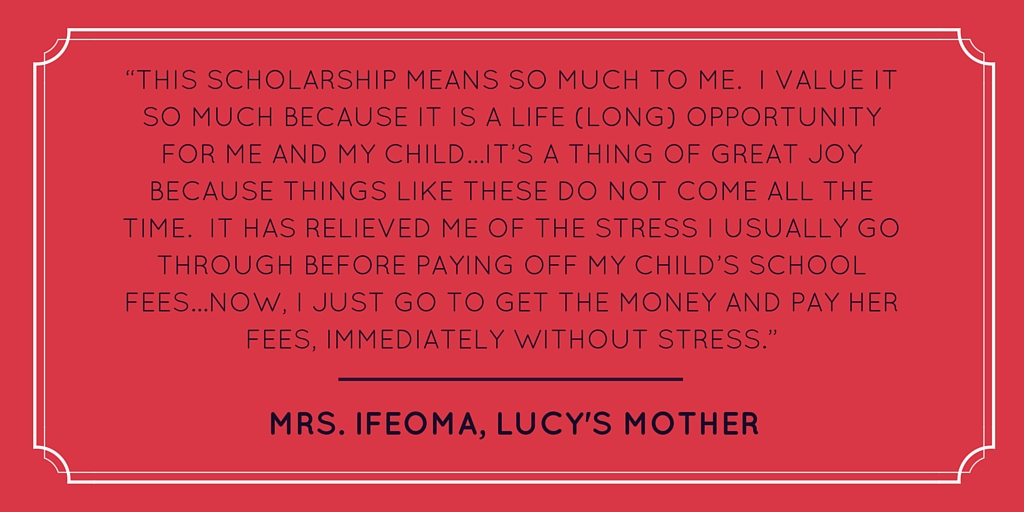
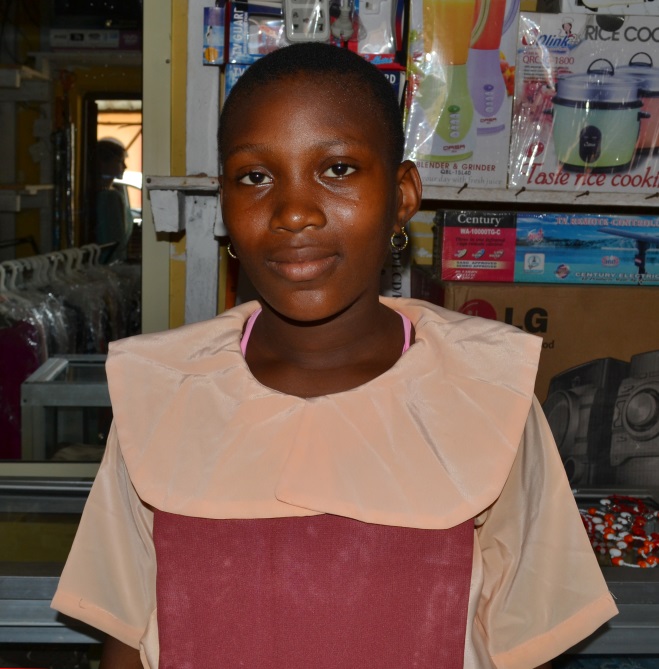 The Scholarship Fund that Lucy received was created in memorial of Anne Johnson, former PfD Country Program Director. Initially PfD, in partnership with Life Above Poverty Organization (LAPO), set a target of $20,000.00 annually to support the Scholarship endowment. However, in August 2015, less than one year after the AJMSF began, friends, family members and three institutions donated close to $30,000 in her memorial.
The Scholarship Fund that Lucy received was created in memorial of Anne Johnson, former PfD Country Program Director. Initially PfD, in partnership with Life Above Poverty Organization (LAPO), set a target of $20,000.00 annually to support the Scholarship endowment. However, in August 2015, less than one year after the AJMSF began, friends, family members and three institutions donated close to $30,000 in her memorial.
Since 2014, 26 Nigerian girls have been awarded scholarships from the AJSMF to support their secondary education. Each year, drawings are held to decide on the winners because there were so many girls who qualify for scholarships based on economic need. Staff members from LAPO and PfD meet with the winners a few times a year to track their successes in school since receiving the scholarship fund. Past AJMSF recipients have graduated from secondary school and will continue to receive support from PfD to further their education.
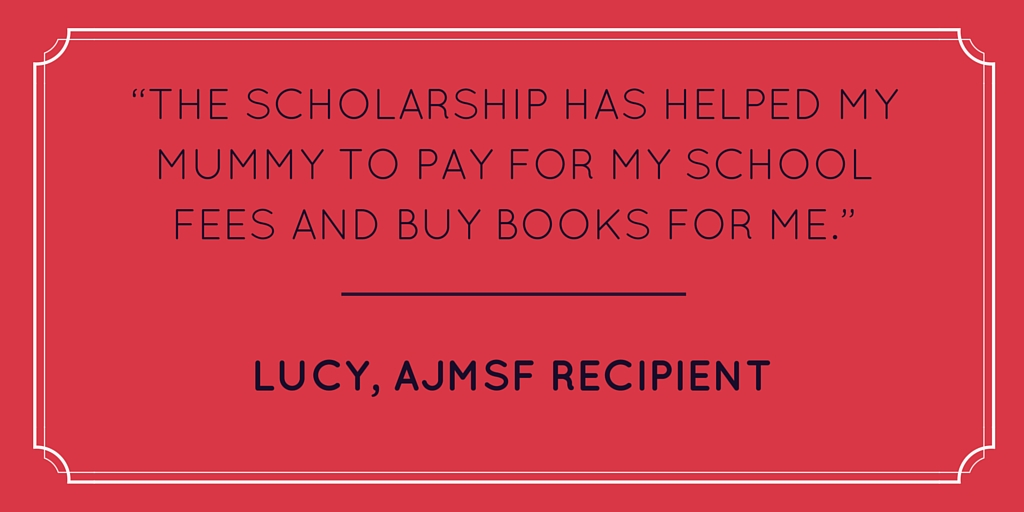 In the future, PfD and LAPO plan to give other young girls like Lucy the opportunity to help pay for secondary school and achieve their educational aspirations. To support more girls like Lucy donate $250 to the Scholarship Fund today.
In the future, PfD and LAPO plan to give other young girls like Lucy the opportunity to help pay for secondary school and achieve their educational aspirations. To support more girls like Lucy donate $250 to the Scholarship Fund today.
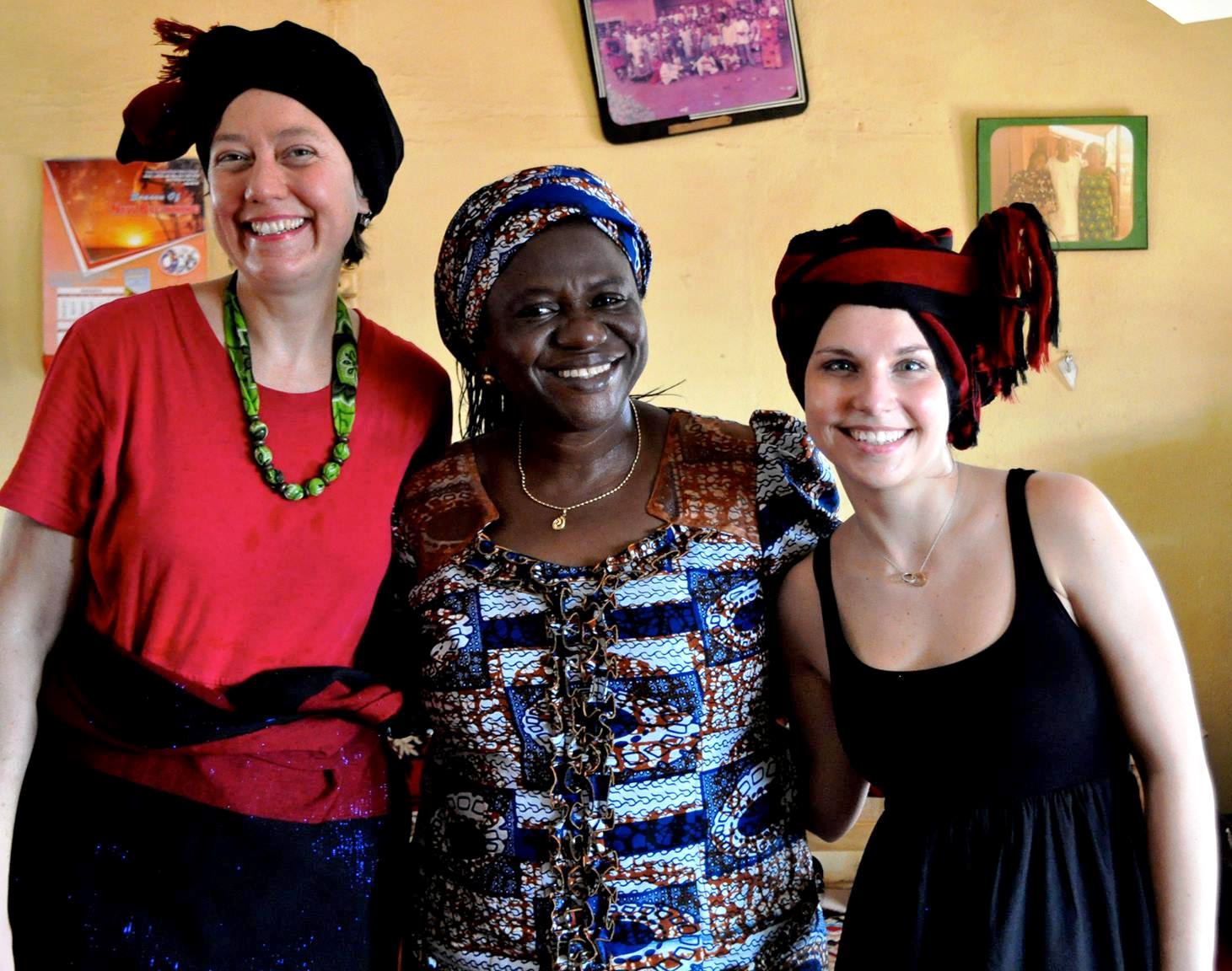
As a young Program Officer working in the Partners for Development (PfD) headquarters, I still remember the first time I met Anne Johnson, PfD’s Nigeria Country Program Director at the time. Although she barely knew me, Anne had such warmth about her she instantly made me feel like we were old friends. Anne had the rare ability to make others feel comfortable in their own skin. Her overflowing positive energy was infectious. Anne was able to bring out the best in you.
 Anne was passionate about many subjects, including girls’ education in Nigeria; hence PfD’s efforts to honor her memory through the Anne Johnson Memorial Scholarship Fund. Numerous studies have demonstrated the relationship in developing nations between education and social and economic well-being: females with a secondary education have lower fertility levels which in turn translates to better physical and economic health for them and their families. “Educating girls can transform whole communities” (Earth Policy Institute, 2011).
Anne was passionate about many subjects, including girls’ education in Nigeria; hence PfD’s efforts to honor her memory through the Anne Johnson Memorial Scholarship Fund. Numerous studies have demonstrated the relationship in developing nations between education and social and economic well-being: females with a secondary education have lower fertility levels which in turn translates to better physical and economic health for them and their families. “Educating girls can transform whole communities” (Earth Policy Institute, 2011).
To PfD Anne was a gifted Country Program Director, Director of Programs, consultant and driving force behind much of PfD’s amazing work. She had an unrivaled passion for the work PfD did and believed in each and every one of our programs. To me, Anne was a mentor, a friend, and an inspiration. Anne epitomizes the passion that drives PfD’s mission. Although Anne’s work with PfD was cut short by illness, her legacy lives on in the people she touched—from the hundreds of field staff, partners and PfD employees to the thousands of women, men and now young girls she helps achieve.
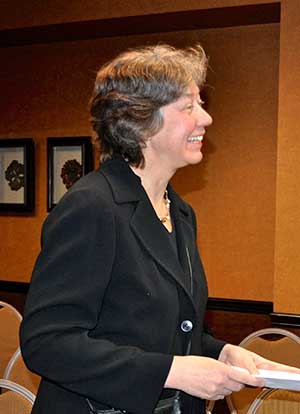 I still remember how confident she was that my background in journalism was just what her staff needed. Anne gave me my first chance to prove myself. She never stopped pushing me—or PfD. As frustrating and difficult as things got, Anne always had a positive spin on everything. Every conversation began and ended with laughter. Anne was one of the most genuine and loving people I have ever come across. In developing my management style, I aimed to emulate Anne’s effortless ability to take things in stride, find the humor in just about everything and believe in people. She was truly a remarkable person and PfD was lucky enough to have a 20-year relationship with Anne. Anne truly was PfD and because of Anne, I am proud to say that #IamPfD too.
I still remember how confident she was that my background in journalism was just what her staff needed. Anne gave me my first chance to prove myself. She never stopped pushing me—or PfD. As frustrating and difficult as things got, Anne always had a positive spin on everything. Every conversation began and ended with laughter. Anne was one of the most genuine and loving people I have ever come across. In developing my management style, I aimed to emulate Anne’s effortless ability to take things in stride, find the humor in just about everything and believe in people. She was truly a remarkable person and PfD was lucky enough to have a 20-year relationship with Anne. Anne truly was PfD and because of Anne, I am proud to say that #IamPfD too.
**Anne Johnson died on Christmas Eve 2013 after a lengthy battle with cancer. Anne’s commitment to PfD continues today in the form of her scholarship fund for young girls in Nigeria. Her full biography and obituary are available on the PfD website.**
Yoga Burn is a yoga based workout program that is specifically tailored to help women lose weight and shape up. Yoga Burn Reviewsis a complete 12 week program designed to help you tone and firm your body while losing weight and improving flexibility. Zoe Bray-Cotton is the creator behind
Throughout all of December we will be sharing stories from our staff, board, partners, and others from around the globe. We can’t wait to share all of the hopeful, engaging, and positive stories from our work. We will be using the hashtag #IamPfD on Facebook, Twitter and LinkedIn.

Be sure to share the posts that you find engaging and inspiring with friends and family and don’t forget to donate and take an #unselfie of you making a donation and share it with us and use the #IamPfD for a chance to win prizes from PfD.
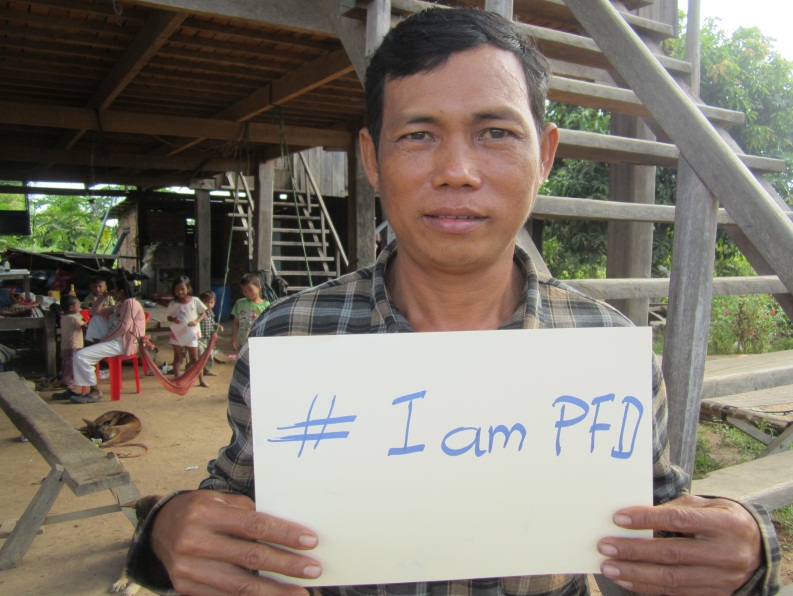
I first learned about PfD when PfD conducted malaria event and malaria education activity in my village using mobile video show. PfD also conducted many other community programs and training such as WASH, nutrition, child survival, agriculture, and chicken raising in my community. In 2013, PfD selected and trained me as Mobile Malaria Worker where I gained the knowledge and skills to provide malaria health education, diagnosis and treatment to my community members.
I am so proud to do this volunteer work.
 I have gained a lot of recognition and respect from the community members, my family, health center staff and the local authorities. I was so impressed with the malaria education activity; it informed and educated me and the community members on how to protect ourselves from malaria and where we can seek treatment when we are infected. Because I live in a malaria endemic village with lack of clean water, I am particularly passionate about malaria and WASH program of PfD’s work.
I have gained a lot of recognition and respect from the community members, my family, health center staff and the local authorities. I was so impressed with the malaria education activity; it informed and educated me and the community members on how to protect ourselves from malaria and where we can seek treatment when we are infected. Because I live in a malaria endemic village with lack of clean water, I am particularly passionate about malaria and WASH program of PfD’s work.
Our work saved our lives.
I think others should join the PfD family because PfD is the oldest NGO in Kratie Province in Cambodia and is implementing community development work to improve the quality and save lives of community members, particularly the vulnerable ones.
Throughout all of December we will be sharing stories from our staff, board, partners, and others from around the globe. We can’t wait to share all of the hopeful, engaging, and positive stories from our work. We will be using the hashtag #IamPfD on Facebook, Twitter and LinkedIn.

Be sure to share the posts that you find engaging and inspiring with friends and family and don’t forget to donate and take an #unselfie of you making a donation and share it with us and use the #IamPfD for a chance to win prizes from PfD.
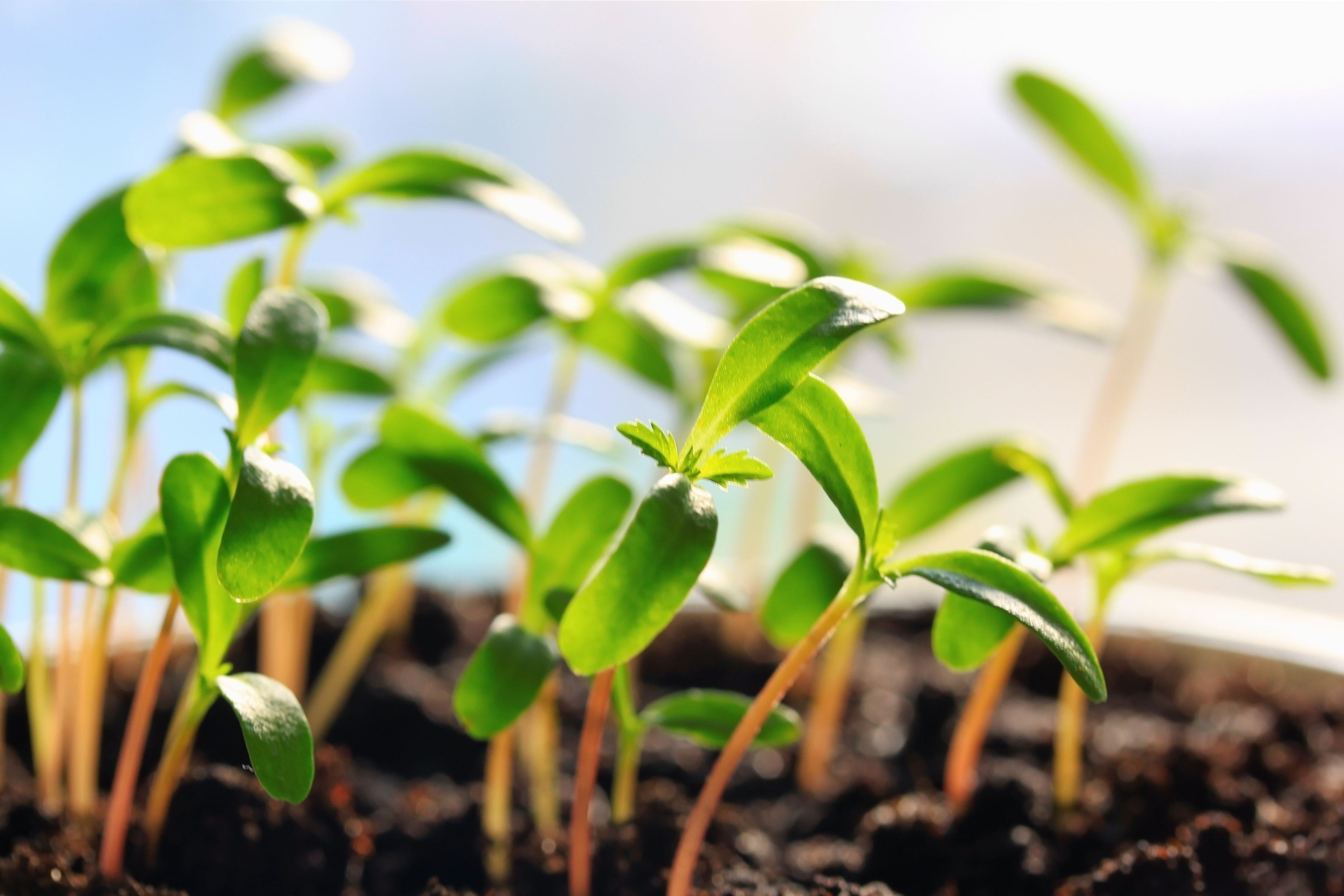
Meet Mr. Cyprien Hindeme, a vegetable farmer in the Allada region of the Atlantique Department in Southern Benin, who used the knowledge and skills he learned through the GREEN project to improve his pineapple production and sales.
The GREEN project (GREEN blog post) trainings taught Cyprien modern cultivation techniques and important farming skills, such as the proper use of chemical fertilizers and pesticides. Through the practical marketing workshops, he learned how to become market orientated in his production, and he continues to use the weekly vegetable prices he receives through SMS messages on his cellphone to negotiate sales of his vegetables even before they reach the local markets. This way, not only does he ensure he gets the best prices for his produce, but he also cuts down transportation costs and reduces post-harvest losses.
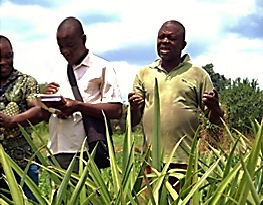
But vegetables are only part of Cyprien’s income, as he also has a pineapple grove. After witnessing the success of the GREEN project techniques with his cabbage, Cyprien decided to use this knowledge and skills to improve his sugar loaf pineapple production.
By modifying his use of fertilizers and insecticide to comply with GREEN recommendations, he grew larger, juicier pineapples. He also used his marketing skills to research the local and regional pineapple markets and diversify his clients. Now Cyprien delivers his higher quality pineapples to wholesalers in Togo and Burkina Faso, while still servicing buyers in his local market. He also now supplies his top quality fruit to three prominent hotels in the Atlantique Department.
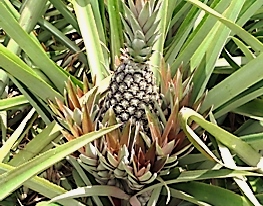
With additional income, Cyprien was able to send one of his children to Benin’s agricultural technical college, ensuring his future and the continued success of his family’s farm. He was also able to buy laptop computers for both of his children attending university, who have now developed marketable computer skills. Cyprien attributes his success to the GREEN project trainings, and says, “now that GREEN helped me with my cabbages and pineapples, now I am ready to try other crops too.”
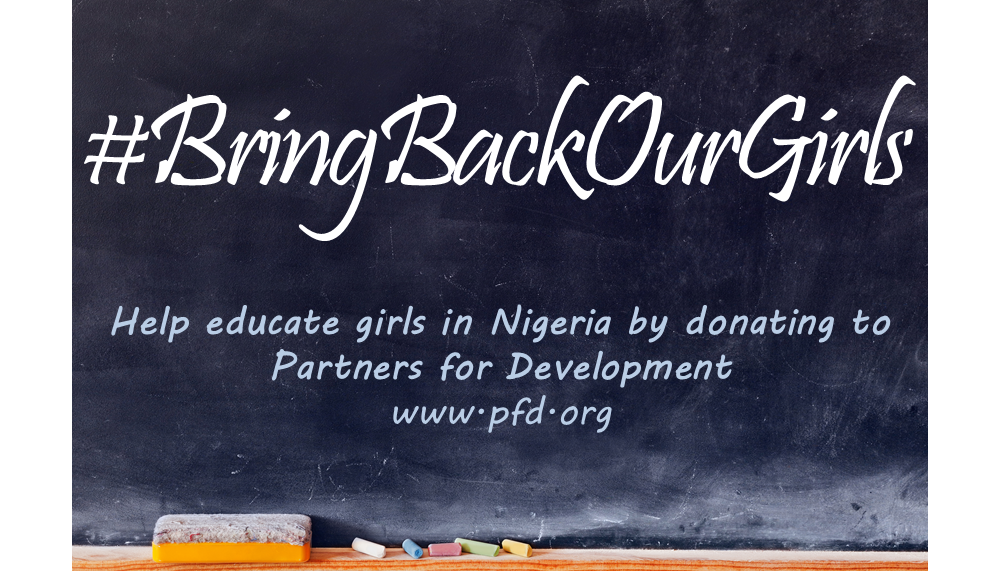
This week marked the one year anniversary of the abduction of the 276 Chibok girls by extremist group “Boko Haram” in Nigeria. This unfortunate anniversary comes with a gift of optimism as around 300 young girls and 150 women were recently found in the Sambisa Forest this past week by Nigerian forces (AP). The Nigerian military has not determined if any of the rescued women and girls were abducted from Chibok or from other areas. The rescue represents hope for the Chibok girls to be returned home (AP).
 In addition to the devastating abduction of the Chibok girls, the communities in Nigeria have faced numerous other challenges, including a decreased ability for international organizations to operate and implement programming. PfD has, for example, experienced delays in implementing activities in some locations close to Boko Haram strongholds and was forced to relocate beneficiaries to safer locations for trainings. On several occasions, alternative and longer travel routes were used to in order avoid attacks. In addition, losses were recorded in PfD’s microfinance program activities due to significant relocation and attrition of borrowers and difficulty in recruiting quality staff in the northern areas.
In addition to the devastating abduction of the Chibok girls, the communities in Nigeria have faced numerous other challenges, including a decreased ability for international organizations to operate and implement programming. PfD has, for example, experienced delays in implementing activities in some locations close to Boko Haram strongholds and was forced to relocate beneficiaries to safer locations for trainings. On several occasions, alternative and longer travel routes were used to in order avoid attacks. In addition, losses were recorded in PfD’s microfinance program activities due to significant relocation and attrition of borrowers and difficulty in recruiting quality staff in the northern areas.
Despite these challenges, employing local staff with a deep understanding of the political, cultural, and security situation has allowed PfD to continue to implement its health program in northern Bauchi State of Nigeria.
Aside from the loss of numerous human lives, destruction of infrastructures and the general deterioration of the economy in the northern region, the education sector has suffered immensely. According to UNICEF, 800,000 children have been displaced throughout Nigeria due to “Boko Haram” violence. The sheer number of displacements combined with a high level of fear of attending school in those areas poses a major threat to the future of the education sector in the northeastern part of the country.
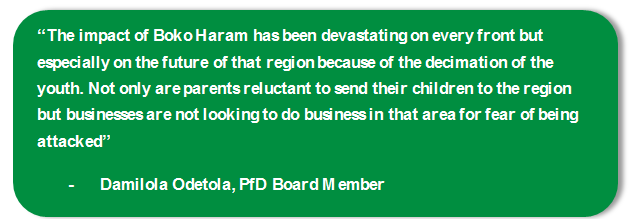 In Nigeria, “about 10.1 million children who are supposed to be in basic education were not in school. In other words, almost one out of every three primary age children is out of school, and roughly one out of four junior secondary age children is out of school” (UNESCO 2012).
In Nigeria, “about 10.1 million children who are supposed to be in basic education were not in school. In other words, almost one out of every three primary age children is out of school, and roughly one out of four junior secondary age children is out of school” (UNESCO 2012).
In a country where school turnout was a serious issue well before the insurgence of “Boko Haram”, the latter has “further compounded the problem of school attendance by destroying school infrastructure and displacing people fleeing violence” according to Lanre Williams-Ayedun, PfD Board Member.
So what are we doing about it?
Educating girls yields a positive impact on economic development and the health of the family overall. PFD continues to advocate for girls’ education in Nigeria through its Anne Johnson Memorial Scholarship Fund (AJMSF) created in honor of the late Anne Johnson, a former Nigeria Program Director who was critically engaged and passionate about girls’ education. In partnership with two local organizations, Gerewa and Lift Above Poverty Organization (LAPO), PfD provides scholarships and opportunities for disadvantaged girls.
Solution and opportunities – What needs be done?
Besides strictly following PfD’s security guidelines, PfD staff members are also in constant communication with members of communities in which it operates to provide intelligence on security situation before any travels around locations infested with insurgents. Communities that surround “Boko Haram” strongholds need to relate useful information to authorities to help facilitate the search and rescue process. If and when the girls are found, steps also need to be taken by the government to provide counseling services to the kidnapped girls and facilitate their reinsertion into their community and society.
What can you do?
- Donate to the Anne Johnson Memorial Scholarship Fundto help girls learn in Nigeria
- Share this post and continue to raise awareness regarding and help girls learn in Nigeria
- Learn about and promote the Safe School Initiative
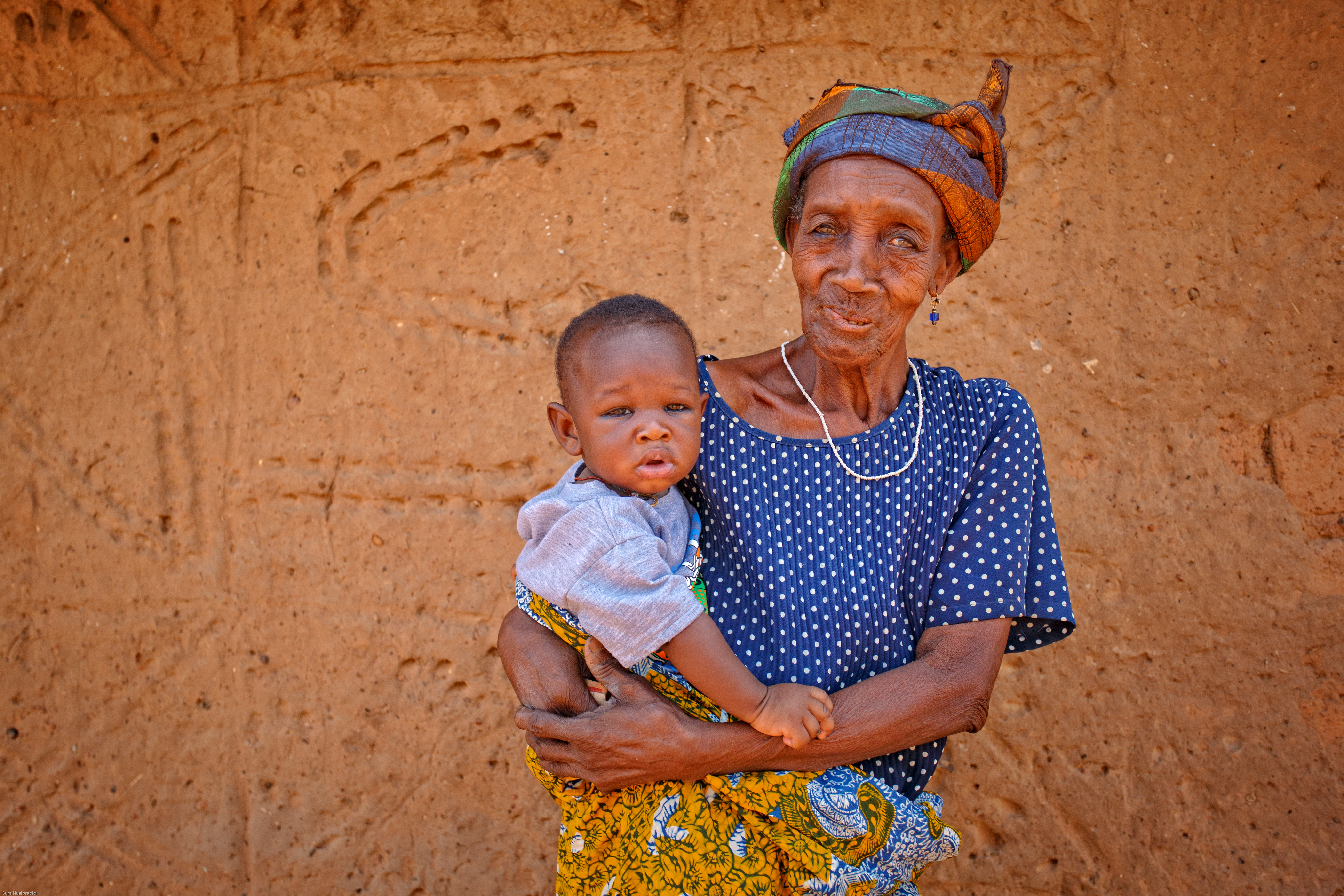
Today, on the 67th anniversary of the creation of the World Health Organization (WHO), individuals and organizations have the opportunity to highlight initiatives around the globe that promote better health. Thus today, PFD shines the spotlight on our work in Sexual Reproductive Health and Rights (SRHR) around the globe.
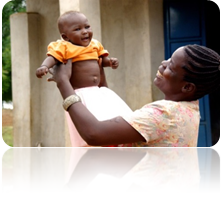 Improving Sexual Reproductive Health Rights (SRHR) is essential for the physical, mental and social wellbeing of individuals, especially women. While progress has been made, women frequently suffer from unequal gender relations, limiting their physical agency and ability to negotiate safe sex. In the developing world, as many as 222 million women do not have access to any methods of contraception (WHO 2015). The consequences of this are far reaching including maternal mortality, physiological trauma, higher rates of STDs and higher numbers of infant mortality. Thus, SRHR is a crucial human rights issue that has long-term implications on global health and international development as a whole.
Improving Sexual Reproductive Health Rights (SRHR) is essential for the physical, mental and social wellbeing of individuals, especially women. While progress has been made, women frequently suffer from unequal gender relations, limiting their physical agency and ability to negotiate safe sex. In the developing world, as many as 222 million women do not have access to any methods of contraception (WHO 2015). The consequences of this are far reaching including maternal mortality, physiological trauma, higher rates of STDs and higher numbers of infant mortality. Thus, SRHR is a crucial human rights issue that has long-term implications on global health and international development as a whole.
PFD has an extensive history with reproductive health programming in both Africa and Asia. In Cambodia, for example, beginning in 2004, PFD partnered with the United Nations Fund for Population Activities (UNFPA) to provide access to quality reproductive health education and services. The program was primarily targeted towards young people ages 10-24 in Kratie Province. PFD also integrated HIV/AIDS prevention into our SRHR programing. This collaboration increased effectiveness and efficiency by reaching the youth with education on both the key issues of reproductive health and disease prevention simultaneously.
Since its initial work in Cambodia, PFD has expanded its reproductive health targeted programming toNigeria. Working in some of the most challenging areas in Nigeria, PFD has successfully implemented integrative reproductive health programming with microfinance initiatives. In Bauchi State, a northern province in Nigeria, PFD has expanded its health systems project Targeted States High Impact Project (TSHIP) in collaboration with John Snow International (JSI) and funded by United States Agency for International Development (USAID). TSHIP fosters improvement of reproductive and family planning services through grassroots techniques and local partnerships. PFD has combined these programs with income generating activities that facilitate business skills and small enterprise development, improving the personal autonomy and livelihoods of poor women.
TSHIP Outcomes as of December 2014:
- Provided Reproductive Health (RH) counseling to 37,528 to males and females or reproductive age.
- Increased the completion rate of individual RH referrals to 74%.
- Provided intermittent preventive treatment (IPT) for malaria to 57,067 pregnant women.
- Aided 10,286 births with skilled attendants.
What can you do?
You too can make an impact on World Health Day. Show your support by sharing on social media and tagging @Partners4dev on Twitter or following us on Facebook. Support Partners for Development’s work in health around the globe and donate here.


